CONTACT
We will reply as soon as possible.
Enevia Health, LLC
30 N Gould Ste N, Sheridan, WY 82801, USA
At Enevia Health we want to raise awareness regarding the use of certain materials when preparing our meals, due to the large amount of toxins that they can release when subjected to high temperatures such as those in the oven or direct fire, but also other products. which are used in microwaves that release molecular structures that can generate many pathologies in the long term. There are also certain foods such as acids that wear down the coating of utensils, leaving traces of it in the food we eat.
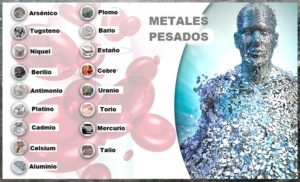
They are recognized as toxic but are also known as heavy metals. This is an even more paradoxical fact when we buy organic products that in the long term can be harmful to our health due to the way we cook them. So we buy these foods because they tell us that they have not had any intervention of toxic products in any of their growing, raising or processing processes and then at home they go straight to a Teflon frying pan, an aluminum pot or a casserole that releases lead. .
Heavy metal poisoning happens because our body does not have systems to eliminate heavy metals. Its accumulation produces slow, insidious and inevitable toxicity.
Some of the materials that can release molecules harmful to Health are:

Various cookware can be made from aluminum due to its lightness, thermal conductivity, and corrosion resistance. Some common examples are:
Some aspects to consider highly harmful regarding the use of Aluminum are:
To reduce the health risks associated with the use of aluminum cookware, it is recommended:
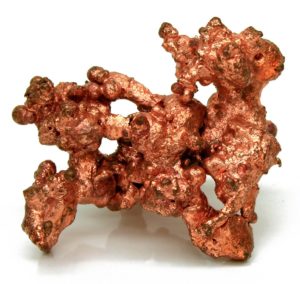
Copper is another material commonly used in cookware due to its excellent thermal conductivity. Here are some cookware that can be made entirely of copper or have copper coatings:
The presence of copper in kitchen utensils can have health risks:
To reduce the health risks associated with the use of copper cookware, it is recommended:

Enameled cookware is common and offers several advantages, such as an easy-to-clean nonstick surface and corrosion resistance. Here are some examples of cookware that may be made entirely of enamel or have enamel coatings:
The presence of enamels on kitchen utensils is an important aspect to consider due to the possible health risks they may represent. Enameled cookware is typically coated with a layer of ceramic enamel to provide nonstick properties and protect the underlying material, such as cast iron or steel. But it may include certain risks such as:
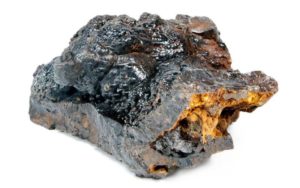
Iron is a popular material for cookware due to its durability and its ability to retain and distribute heat evenly. Here are some kitchen utensils that may be made entirely of iron or contain iron:
The use of iron in kitchen utensils is common and has health risks. as they are:

Teflon coated cookware is popular due to its excellent non-stick property. It is present in:
Teflon is a trademark for a nonstick material that contains PFOA (perfluorooctanoic acid), a chemical compound used in the manufacture of nonstick cookware and heat-resistant coatings.
PFOA has been the subject of concern due to its persistence in the environment and its potential toxicity to human health. Some of the health risks associated with exposure to PFOA and Teflon are:
To reduce exposure to PFOA and Teflon in cookware, it is recommended to opt for utensils made with safe materials free of these chemical compounds. Cookware made of stainless steel, cast iron, ceramic or glass are safer and healthier alternatives to avoid exposure to PFOA.
Additionally, it is important to use Teflon nonstick cookware at moderate temperatures and avoid overheating, as excessive heating can release toxic gases. Maintaining adequate ventilation in the kitchen when cooking with nonstick cookware can also help reduce the risk of PFOA exposure and protect the health of the entire family.

Kitchen utensils that may be made of or contain plastic are numerous, and are often used in various culinary tasks due to their versatility and ease of cleaning. Here are some examples:
Both phthalates and bisphenol A are endocrine disruptors that can interfere with the human hormonal system and cause a variety of adverse health effects.
Phthalates are chemical compounds used in the manufacture of plastics to make them more flexible and resistant. These compounds can migrate from plastic cookware into food, especially when heated or exposed to acids, fats, or alcohol. Some of the health risks associated with exposure to phthalates may include:
On the other hand, bisphenol A (BPA) is a chemical compound used in the manufacture of hard and resistant plastics, such as kitchen utensils, water bottles and food storage containers. Some of the health risks associated with exposure to BPA include:
Additionally, it is important to avoid heating food in plastic containers, especially in the microwave, and opt for safer alternatives for storing and handling food.
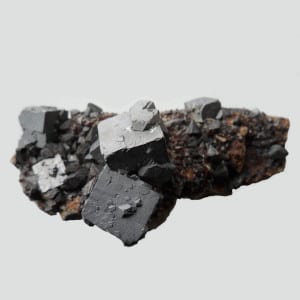
Lead is a naturally occurring heavy metal that has been used in various industries, including the manufacture of kitchen utensils. Throughout history, lead has been used in the production of pots, pans, enameled cookware, and other containers due to its low melting point, malleability, and resistance to corrosion. However, the use of cookware containing lead can pose a significant risk to human health.
It is present in:
The effects of lead on human health are concerning and well documented. Exposure to lead, whether through ingestion of food cooked in lead utensils, inhalation of lead dust, or direct contact with contaminated surfaces, can have serious health consequences, especially in children and pregnant women. Some of the effects of lead on human health include:
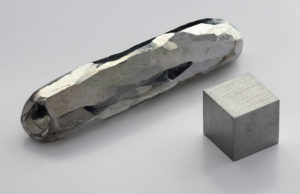
Cadmium is a toxic heavy metal that occurs naturally in the environment, but can also be released through human activities such as mining, chemical manufacturing, and waste incineration. When cadmium is used in the production of cookware, whether in the form of coatings, enamels or alloys, there is a risk of this toxic metal being released and contaminating food during the cooking process.
Cookware containing cadmium is extremely rare today due to food safety regulations. It could be found at:
The health risks associated with cadmium exposure are significant and can have serious short- and long-term consequences. Some of the effects of cadmium on human health include:
It is important to maintain good ventilation in the kitchen when cooking, avoid using damaged or worn utensils that can release cadmium, and follow safe food handling practices to protect the health of the entire family.
At Enevia, we have different tests that can help you orient yourself and distinguish the heavy metals present in your body, you can find them at:
(For tests in Spain it is necessary to request them through our email atencionalcliente@eneviahealth.com)
Astrocytes in heavy metal neurotoxicity and neurodegeneration – PubMed (nih.gov)
We will reply as soon as possible.
30 N Gould Ste N, Sheridan, WY 82801, USA
Our groups are the ideal platform to learn and share your scientific concerns about neurodevelopment issues
*Our purpose is informational only, it is not intended to be a substitute for medical advice, diagnosis or treatment.
We are working on our website. For any queries, you can contact our customer service team at atencionalcliente@eneviahealth.com